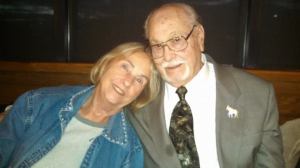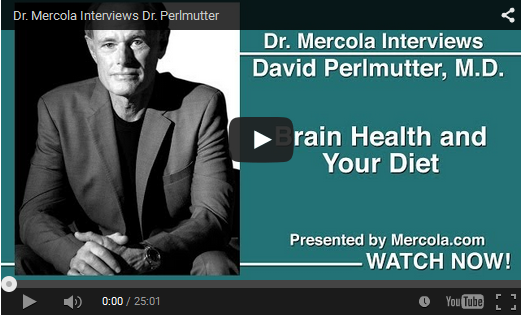Mom, 2008, South Fort Myers, Florida.
My parents (mother and stepfather) drove all the way to Florida to visit for the first time. They discovered Love Boat Ice Cream a few miles from my place.
I love this picture with her wide smile and big honking scoop of orange pineapple in – what else – waffle cone. It’s nearly as big as her head.
November 2014, Utica, Michigan. The light was leaving her eyes.
It was the first time she didn’t know who I was. She did remember to smile for a camera. It was her only smile on the great occasion of his 90th birthday. Family gathered, but she didn’t remember anyone but my stepbrother and her sister.
This week my stepfather told me she sits on the lawn pulling grass. For hours. There are great bald patches. He can’t get her to come in. My grandmother did the same thing.
He said she’s dirty and covered with mosquito bites. She no longer bathes; he continues to refuse assistance of any kind.
My mother was … yes, past tense; she was a person who consumed a diet of sugar, grains and baked goods. She said “I’m vegetarian except for bacon.” (And burgers, steaks …)
She took long walks most every day, but was mostly antisocial. Then she got to the point that she no longer cared to figure anything out. Forgot how to send an email.
It grabbed her by both ankles and pulled her down. She drowned without a fight.
She believed Alzheimer’s would not happen to her, could not happen to her. It had happened to her mother, but her mother was (in her eyes) weak and stupid. She deserved it.
Nobody deserves it.
Christmas in Michigan’s Upper Peninsula, 2009.
That’s me on the right, puffy, yellow and miserable. It wasn’t my chronic Lyme disease, it was something else; unbearable bloat. What was making me so SICK? Their high sugar, high gluten, sausage, sandwich and donuts lifestyle.
June, 2015; older and wiser.
I didn’t know to connect the dots until the past few years. Thank you Dr. Davis of Wheat Belly and Dr. Perlmutter of Grain Brain. If their recommendations can heal the body, how can they fail to help preserve the brain?
I take it a little further; I find choosing, buying and eating with awareness soothes my conscience.
It’s karma on a fork.
Compare organic farms where land and livestock are honored vs. factory farms where animals are shit and Profit is God. We vote for or against their inhumane behaviors with our grocery dollars.
My diet today is low carb, gluten/grain free, sugar free vegetarian. I eat organic vegetables, wild caught salmon and eggs from free-range chickens vs. pale sick birds that never see sunlight. No soul need suffer for me to survive!
Karma by the spoonful.
Did you know sugar is killing the Everglades?
“Sugarcane is grown primarily in the tropics and subtropics. In the United States, sugarcane is grown commercially in Florida, Louisiana, Texas and Hawaii.” http://tinyurl.com/p4oq6ko
I am less than one mile from the Caloosahatchee river. These releases are destroying our waters, marine life and tourist economy. Dolphins and pilot whales die on our beaches.
If you own property here, you should be very concerned.
“With wealthy sugar polluters running the show in Tallahassee, it sometimes seems hopeless to stop them from slowly killing our coasts and destroying the Everglades.”
http://www.orlandosentinel.com/opinion/os-ed-everglades-big-sugar-040115-20150331-story.html
My Environmental Activists of SW Florida page on Facebook.
https://www.facebook.com/SWFLEnvironmentalActivists
Is a conscientious, karma-friendly diet expensive?
Not at all; because your starving body is finally getting nutrition! Cravings go away and you need less food. Dr. Mercola summarizes the basics.
“Two key instructions are:
Avoid processed foods of all kinds, as they contain a number of ingredients harmful to your brain, including refined sugar, processed fructose, grains (particularly gluten), genetically engineered (GE) ingredients, and pesticides like glyphosate (an herbicide thought to be worse than DDT, and DDT has already been linked to the development of Alzheimer’s)
Optimize your gut flora by avoiding processed foods (sugar, GE ingredients, pesticides and various food additives all discourage healthy bacteria in your gut), antibiotics and antibacterial products, fluoridated and chlorinated water, and by regularly eating traditionally fermented and cultured foods, along with a high quality probiotic if needed.
WHEAT BELLY
Here’s a link to Dr. Davis’ most recent book:
http://tinyurl.com/o7wky85
GRAIN BRAIN
And a link to Dr. Perlmutter’s book.
http://tinyurl.com/qeuqk85
I also have a Facebook page named “The Gluten Free Vegetarian.”
It sounds impossible but it’s not.
https://www.facebook.com/defeatfrankenwheat
You can friend me on Facebook at mickisuzanne
https://www.facebook.com/mickisuzanne




















